In the short film below, Steve went to central London to witness the Convoy to Calais protest on 18 June 2016. The protest was organised by over a dozen organisations, including the Stop the War Coalition, the People’s Assembly Against Austerity, Unison, Humanitas and the Muslim Association of Britain. The plan for the protest was to gather a large number of vehicles, of all sizes, to take aid to the refugee camps in France. Steve asks why the organisers chose central London as the starting point for the protest and why the protest took this form.
Transcript
Steve Pile (SP): We’ve come to central London today, because the Stop the War Coalition has organised a protest about the refugee situation in the Mediterranean. We’ve come to see the protest and to see whether they’ve managed to gather a huge protest as they want to do. We’re now in the heart of Whitehall, the centre of the government. And we can see behind me the Cenotaph and the war memorials. And we can see the cars beginning to pile up. The plan today is to assemble a large collection of different kinds of vehicles, a convoy to Calais, that will show solidarity with the refugees coming from Syria. Speeches are taking place just opposite 10 Downing Street.
Sam Fairbairn: That the French government has banned the convoy from entering France. But we’re going to defy that boundary. We are leaving Whitehall and we are going to Dover anyway.
Zita Holbourne: Refugees are being scapegoated, they’re being demonised. People that are fleeing from climate change, from poverty, from war, from persecution, deserve to be treated with humanity. Nobody risks their lives and the lives of their family crossing the Mediterranean to try and get to a safe haven and start their lives again unless what they’re fleeing is much worse than what they’re facing. People are living in an absolute hellhole in those camps in Calais, Dunkirk, and other places. And we must send a strong political message.
John Rees: And there are people here today from the Shetland Islands in the north through the south coast who are here to say refugees are welcome here.
SP: Behind me, there are speakers from different organisations. They’re talking about the solidarity that they feel with the refugees. But they’re complaining about geography. They’re complaining about the ways in which the borders have been shut off. They’re complaining about the ways in which our government has failed to help people from other countries. They’re complaining about how people are being restricted from moving across borders. This convoy is meant to be a demonstration that borders are porous, that people should be allowed to move across them. For me, this protest conjures up images of refugees dying in the boats, but even more poignantly, of the image of children dying on the beaches.
There is a geography to this protest. We’re here in the centre of London, because this is the seat of government. This is where the appeal is being made to Parliament, because we’re right close to Parliament Square. The speakers are directly opposite Downing Street. But there is another geography here. There is a geography of war. Behind me is the Cenotaph, and that reminds us that other people have died on beaches. Some part of this convoy is about evoking the Dunkirk spirit. This is a haunted protest, haunted by the deaths of refugees, but also haunted by that sense that the British help people when they’re in distress. They’re prepared to get into convoys, these small vehicles, and go and help people who are on the beaches.
This protest isn’t simply symbolic. It isn't about showing people’s anger, showing solidarity. It’s about doing things. It’s about making stuff happen. Convoy’s just leaving now, on its way to Calais. They came this morning not knowing whether there would be anybody here or what kind of protests there would be. But as you can see, hundreds of people and dozens and dozens of vehicles have turned up to show solidarity with the refugees, to make a demand on the governments to act in the face of a humanitarian crisis. And I think to evoke the Dunkirk spirit.
Read more articles from Geography Matters
-
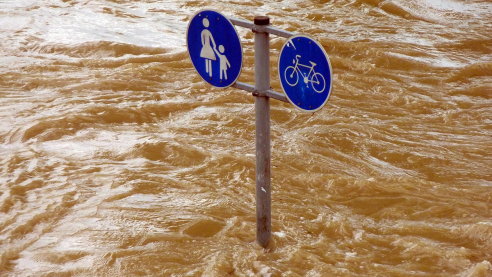
Weather derivatives - the financialization of weather
Listen now to access more details of Weather derivatives - the financialization of weatherIs it possible to manage the risks presented by nature, such as too much rain at the wrong time of the year and very harsh frosts?
-
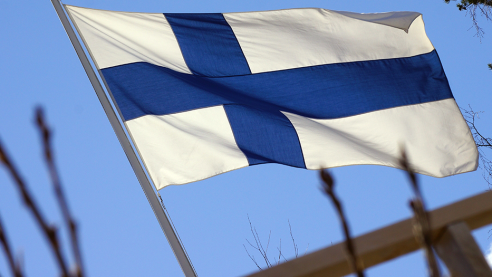
The European Union and the impact on mixed nationality relationships in northern Finland
Listen now to access more details of The European Union and the impact on mixed nationality relationships in northern FinlandCarol Brown-Leonardi investigates how Britain’s exit from the European Union has affected the perceptions and decision-making of mixed nationality couples to stay and live permanently in Finland or the United Kingdom.
-
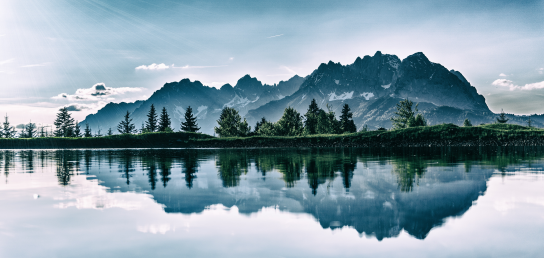
Investigating environmental futures through speculative design
Read now to access more details of Investigating environmental futures through speculative designHow can ‘thinking through making’ facilitate new kinds of geographical enquiry?
-
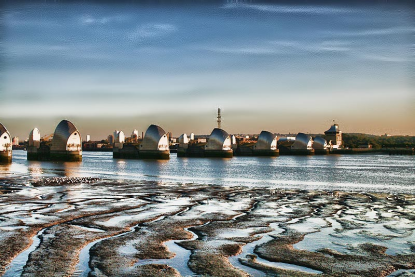
Climate Change, Coastal Erosion and Flooding: The Thames Gateway and London
Read now to access more details of Climate Change, Coastal Erosion and Flooding: The Thames Gateway and LondonClimate change will lead to sea level rises and this will lead to enhanced coastal erosion. Professor David Humphreys explores the challenges that this will pose for the Thames Gateway in south-east England.
-
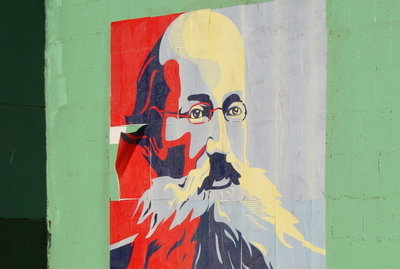
Kropotkin, anarchism and geography: A discussion
Listen now to access more details of Kropotkin, anarchism and geography: A discussionWhat links geography to anarchism? Dr Philip O’Sullivan finds the surprising connection lies with a Russian prince who died nearly 100 years ago.
-
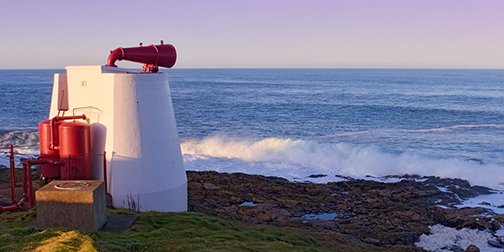
Sounds of environmental change
Listen now to access more details of Sounds of environmental changeWhat does environmental change sound like? Dr George Revill argues that sound can be a powerful way of conveying how places are transformed by climate change.
-
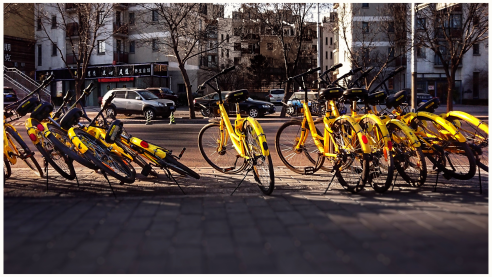
The sharing economy
Take part now to access more details of The sharing economyHow sharing and caring is the sharing economy? Petr Jehlička takes a critical look at the booming sector and traces its hidden connections and contradictions.
-
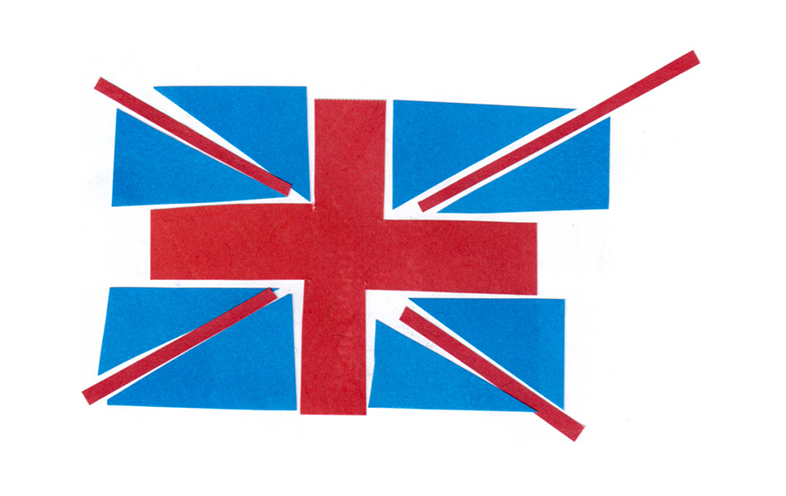
From Brexit to the break-up of Britain?
Learn more to access more details of From Brexit to the break-up of Britain?This free course, From Brexit to the break-up of Britain?, sets the experience of Brexit in the context of the UK. It first analyses Brexit as a symptom of the political, economic and social geography of the UK, focusing on its uneven development in a country increasingly dominated by London and the South East of England. It then considers how ...
-
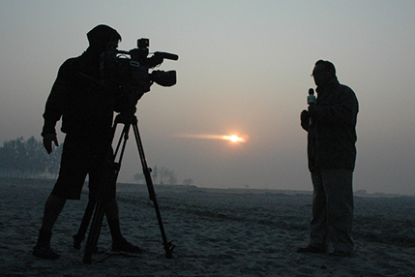
Climate change's causes, effects and geographies of responsibility
Read now to access more details of Climate change's causes, effects and geographies of responsibilityThe idea of climate change is increasingly well-known, but it can be hard to understand its effects in human terms. Professor David Humphreys describes how he experienced Climate Change first hand when working in Bangladesh for The Open University.
-

Was it right to hold a Referendum on Brexit?
Take part now to access more details of Was it right to hold a Referendum on Brexit?Explore your opinions alongside experts and other learners, to see whether a vote to leave the EU should have taken place.
-

International health service: How the NHS has always relied on overseas labour
Read now to access more details of International health service: How the NHS has always relied on overseas labourPotential NHS staff from outside of European Economic Area (EEA) will shortly find it easier to secure permission to work in the UK. Yet doctors and nurses from the EEA may no longer have the right to do so. Dr Parvati Raghuram looks at how the NHS has depended on foreign workers since its creation.
-
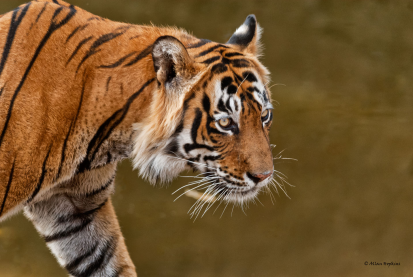
Can we live harmoniously with wildlife?
Read now to access more details of Can we live harmoniously with wildlife?In light of a man-eating tiger being killed in The Nilgiris District, India, we need to address human-animal and human-human conflict in our forests.
-
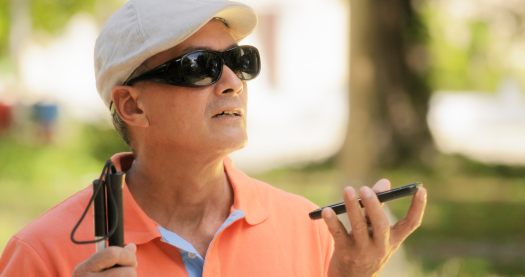
The navigation apps that help the visually impaired
Read now to access more details of The navigation apps that help the visually impairedA technological revolution is underway improving the lives of many who may benefit from additional assistance says human geographer, Dr Oliver Zanetti.
-
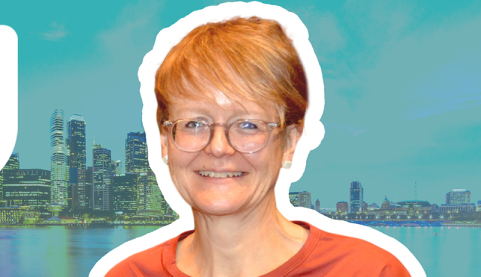
How do you know you are in a smart city?
Watch now to access more details of How do you know you are in a smart city?Integrated urban technology is less apparent when it is functioning well says, Gillian Rose, Professor of Human Geography at the University of Oxford.
-
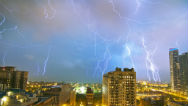
Studying Environments and Societies
Listen now to access more details of Studying Environments and SocietiesWhat does human geography have to do with studying the environment?
-

How data is making our cities smarter
Watch now to access more details of How data is making our cities smarterData research may lead to more efficient, sustainable and democratic societies says Gillian Rose, Professor of Human Geography at the University of Oxford.
-
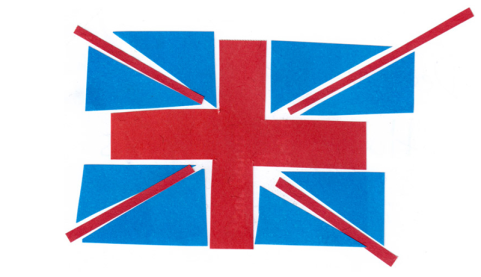
Approaching the break up of Britain?
Read now to access more details of Approaching the break up of Britain?What does the geography of the referendum vote tell us about the (increasingly dis-) United Kingdom?
-

Five smart technologies helping the visually impaired
Watch now to access more details of Five smart technologies helping the visually impairedCutting-edge research is enabling the development of new potentially life-changing prototypes aimed at serving those with disabilities says, Dr Oliver Zanetti.
-
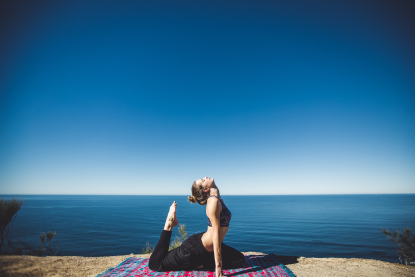
Can yoga help us achieve sustainable development goals?
Read now to access more details of Can yoga help us achieve sustainable development goals?Shonil Bhagwat explains the yogic way of understanding how individual actions relate to global challenges.
-
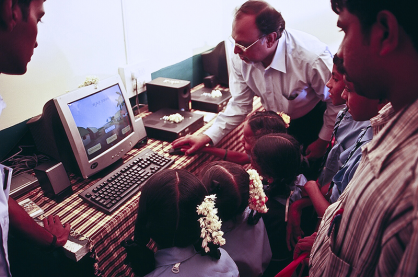
Gender, IT and economic growth
Read now to access more details of Gender, IT and economic growthDoes gender matter to the world's fastest growing economies? Parvati Raghuram explores how the labour driving many Rising Powers is gendered.
-
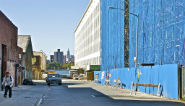
My Interest in Cities is Really an Interest in the Way People Live
Watch now to access more details of My Interest in Cities is Really an Interest in the Way People LiveHow do cities bring places, relationships and networks together, and what sorts of politics do they create?
-
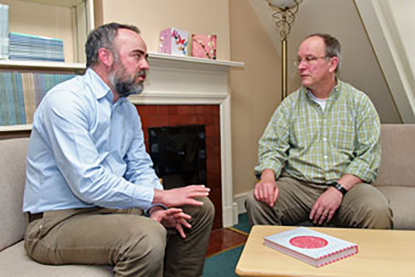
Non-existent countries
Listen now to access more details of Non-existent countriesWhat makes a country count as a country? Andy Morris interviews geographer and broadcaster Nick Middleton about his recent book 'An Atlas of Countries that Don't Exist'.
-
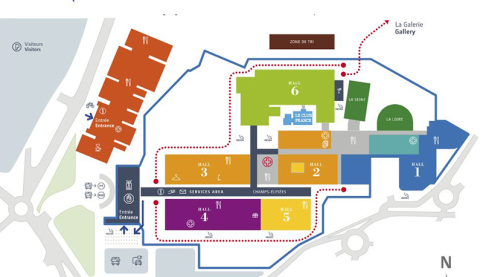
United Nations Climate Change Conference - COP21
Take part now to access more details of United Nations Climate Change Conference - COP21This interactive map is a world first. It gives you the chance to explore a major international meeting on climate change as if you were there.
-
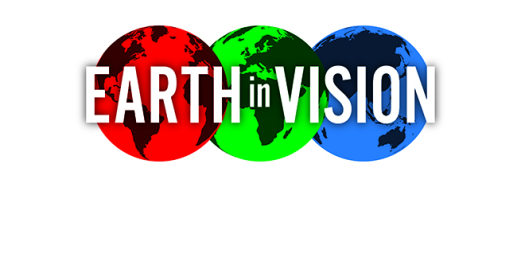
Earth In Vision: A Collection
Watch now to access more details of Earth In Vision: A CollectionThe Earth in Vision project explores the BBC archives of environment themed television and radio programmes from the last 70 years, looking at the potential of these archives as a digital resource as well as to illustrate the potential of digital broadcast archives for researchers.
-
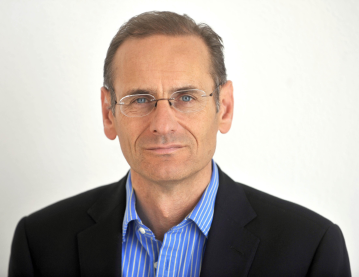
Stories of Change - The Interviews
Listen now to access more details of Stories of Change - The Interviews'Stories of Change' interviews with Roger Harrabin.
-
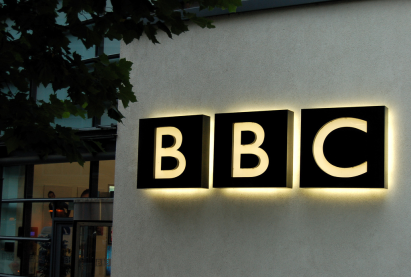
Dropping the population bomb - 50 years of BBC environmental broadcasting, part two
Read now to access more details of Dropping the population bomb - 50 years of BBC environmental broadcasting, part twoHow have the films and radio programmes broadcast by the BBC shaped how we understand environmental change issues? Joe Smith shares his journey through the archives in the second part of a two part podcast series.
-

Fifty years of BBC broadcasting about environmental change issues
Listen now to access more details of Fifty years of BBC broadcasting about environmental change issuesHow have the films and radio programmes broadcast by the BBC shaped how we understand environmental change issues? Joe Smith shares his journey through the archives in a two part podcast series.
-
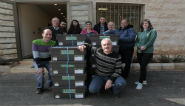
Syria, Spitsbergen and Seeds
Listen now to access more details of Syria, Spitsbergen and SeedsHow are the civil war in Syria, the remote Norwegian island of Spitsbergen, and the future of the world’s food supplies connected?
-
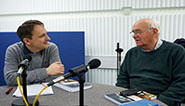
The Legacy of Nuclear Power, Part 2
Listen now to access more details of The Legacy of Nuclear Power, Part 2What ethical decisions does burying nuclear waste involve, and how are we responsible to future generations?
-
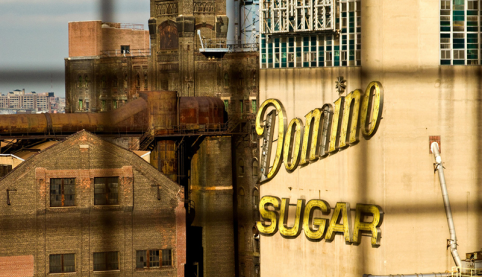
Another spoonful? Understanding the Place of Sugar - Part Two
Read now to access more details of Another spoonful? Understanding the Place of Sugar - Part TwoSteve Pile looks at the changing geographies of sugar.
-

One Lump or Two? Understanding the Place of Sugar - Part One
Read now to access more details of One Lump or Two? Understanding the Place of Sugar - Part OneSugar is a Contradiction - explore the cultural paradox of this ubiquitous ingredient, with Professor Steve Pile.
-
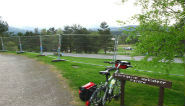
Protecting Landscapes and Creating the Right Tools for the Job
Listen now to access more details of Protecting Landscapes and Creating the Right Tools for the JobHow do national parks manage the demands of different users, whilst still conserving natural beauty?
-
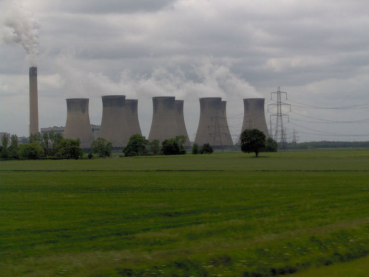
The Legacy of Nuclear Power: Part 1
Listen now to access more details of The Legacy of Nuclear Power: Part 1How do local communities respond to the risks and opportunities of nuclear power?
-
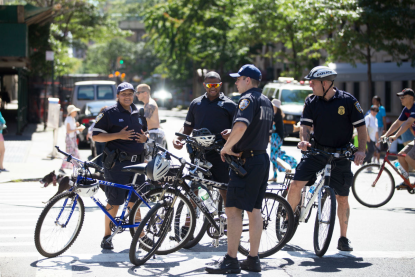
Researching cycling in the US & the UK
Listen now to access more details of Researching cycling in the US & the UKPeter Wood shares his experiences researching cyclists - on both sides of the Atlantic.
-
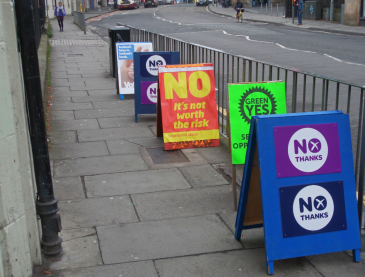
Why I believe 'yes' is only a matter of time
Listen now to access more details of Why I believe 'yes' is only a matter of timeDespite voters in 2014 choosing to stay in the United Kingdom, Gerry Mooney believes that in the long run, an Independent Scotland is inevitable. He explains why.
-
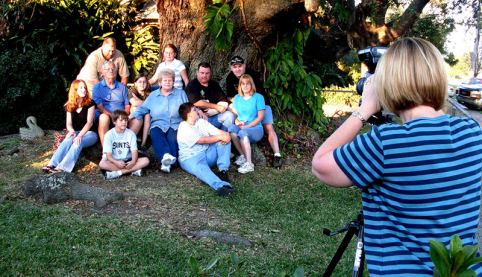
Family photos and what they mean
Watch now to access more details of Family photos and what they meanWhat can family photos tell us about households, gender roles and emerging technology? Professor Gillian Rose explores her research on family photography, and how this work interacts with her own experiences.
-
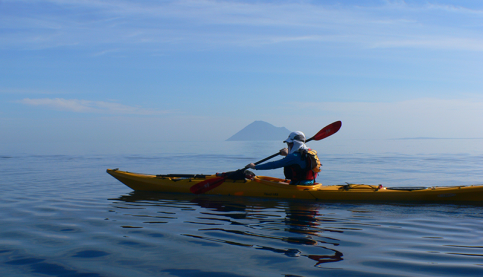
Coping on the Coast: moral economies and liminality at the heart of things that matter
Watch now to access more details of Coping on the Coast: moral economies and liminality at the heart of things that matterDoes geography influence peoples’ sense of security and well-being?
-

‘Citizen sensing’ and new forms of environmental monitoring
Read now to access more details of ‘Citizen sensing’ and new forms of environmental monitoringWhat technological challenges are faced by communities seeking to understand environmental change at different geographical scales?
-
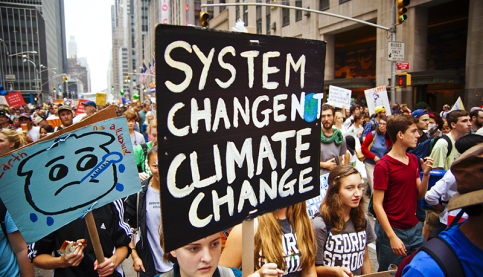
Should we be worried about the US withdrawal from the Paris climate agreement?
Read now to access more details of Should we be worried about the US withdrawal from the Paris climate agreement?The UK government has confirmed that despite the path chosen by the US, the UK would honour the Paris Agreement. Here Shonil Bhagwat looks at the motivations and implications behind the US decision, and how international action on climate change will go on.
-
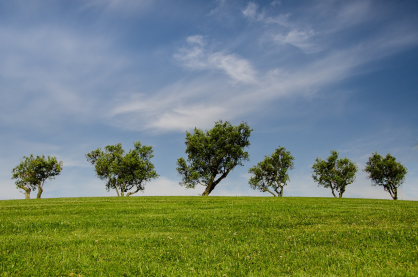
Should Economics and the Environment work together?
Listen now to access more details of Should Economics and the Environment work together?The recent UK general election saw many parties pledge to ‘improve’ the environment. Vicky Johnson considers progress can be measured by more closely connecting the environment to economics.
-
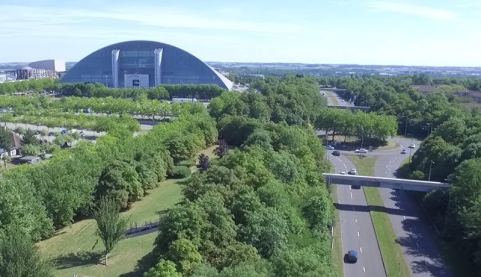
How is Milton Keynes a ‘smart’ city?
Watch now to access more details of How is Milton Keynes a ‘smart’ city?What is a ‘smart city’, and how is smart rooted into Milton Keynes’ past and future?
-
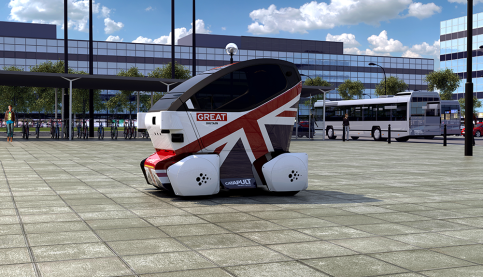
Milton Keynes and the roots of 'Smart' transport
Watch now to access more details of Milton Keynes and the roots of 'Smart' transportLearn about MK’s unique history of transport innovation, and how The Open University has been a part of the experiment.
-
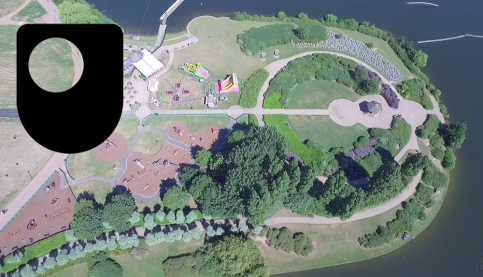
Smart Cities in the Making: Learning from Milton Keynes
Watch now to access more details of Smart Cities in the Making: Learning from Milton KeynesWhy research Milton Keynes? Professor Gillian Rose introduces a study of how cities are increasingly using digital data to improve their management and create new ways of living.
-
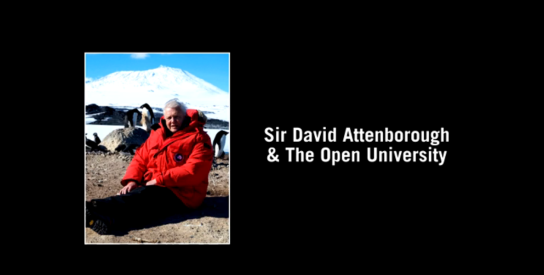
Sir David Attenborough and The Open University
Watch now to access more details of Sir David Attenborough and The Open UniversitySir David Attenborough and The Open University have had a long-standing relationship since the university's birth. David explains how that relationship came about and how it has developed over the years.
-

The Curious Geography of Weetabix: A Cereal Tale for Our Times
Read now to access more details of The Curious Geography of Weetabix: A Cereal Tale for Our TimesWhere is Weetabix actually from? Prof. John Allen investigates.
-
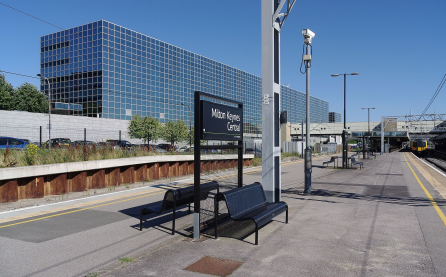
This is not a city: Milton Keynes
Read now to access more details of This is not a city: Milton KeynesWhat makes a city and why does it matter?
-
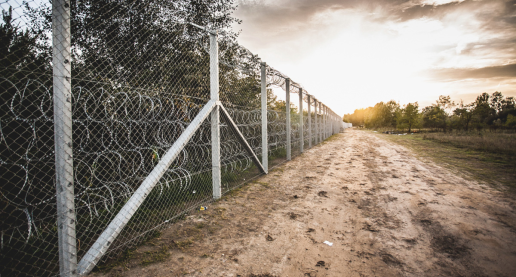
Europe’s Borders in Question
Read now to access more details of Europe’s Borders in QuestionStories about migrants, asylum seekers and refugees make media headlines almost every day. John Allen asks, what's the role of borders in this movement of people?
-
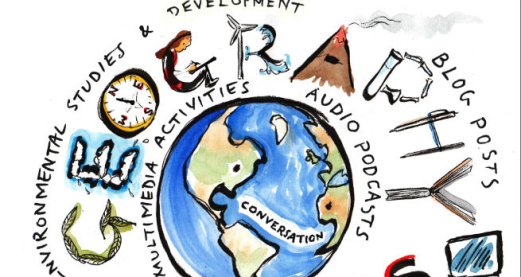
Introducing Geography Matters
Read now to access more details of Introducing Geography MattersThe 'Geography Matters' initative is coming to the Faculty of Arts and Social Sciences.
-
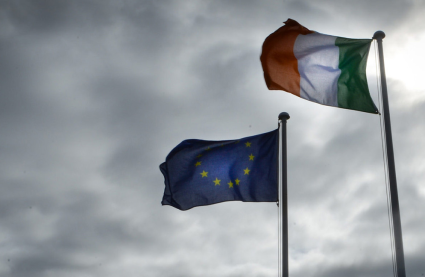
Brexit and the Irish border
Read now to access more details of Brexit and the Irish borderHow are Brexit and the Irish border connected? Dr Philp O'Sullivan reflects on the changing geographical relationship between the UK and Ireland.
-
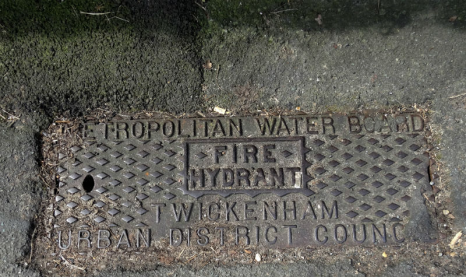
Privatising Thames Water
Read now to access more details of Privatising Thames WaterHow did a public utlity turn into a financial instrument?
-

Seeing the internet
Read now to access more details of Seeing the internetHow do we see the internet? Gillian Rose explores why some artists and campaigners think it's important that the internet is made more visible.
-
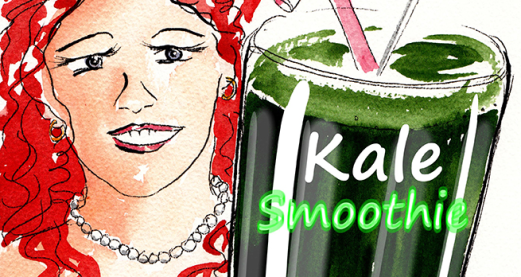
Climate change: the kale smoothie of TV
Read now to access more details of Climate change: the kale smoothie of TVIs climate change the kale smoothie of TV schedules: unappealing but somehow fashionable and even essential to the diet?
-

The environmental costs of Trump’s wall
Read now to access more details of The environmental costs of Trump’s wallTrump's wall will not only have long-lasting impact on human society, but also severe ecological consequences.
-
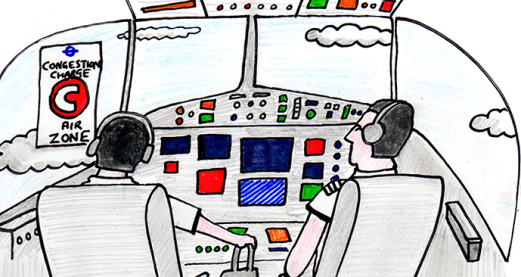
Heathrow third runway: who and where will benefit?
Read now to access more details of Heathrow third runway: who and where will benefit?Exploring the costs and benefits of expanding Heathrow, using a geographical analysis.
-
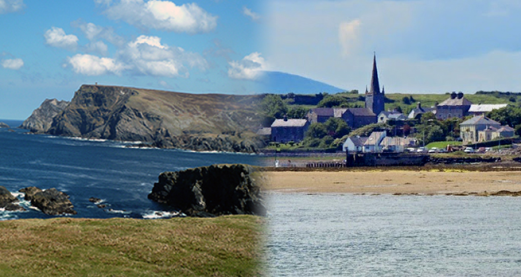
Change in the West of Ireland
Read now to access more details of Change in the West of IrelandIntroducing a collection of articles asking 'How can unique and distinctive regions, like the West of Ireland, retain the qualities that make them unique while continuing to modernise and interact with the wider world?'
-
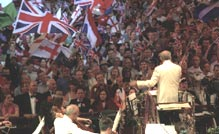
Scoring the Shoreline
Read now to access more details of Scoring the ShorelineGeorge Revill considers the synergy between sound waves and ocean waves - how the coast of Britain has inspired the nation's musical heritage.
-
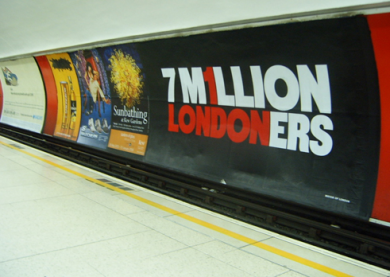
London inside out
Read now to access more details of London inside outFifteen years since the 7/7 bombings, we look back at unity in London after the terror attacks...
-
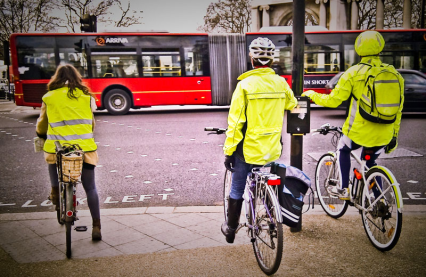
Methods in Motion: Getting on your bike, and looking for answers
Read now to access more details of Methods in Motion: Getting on your bike, and looking for answersDr Peter Wood, a Visiting Fellow with the Geography Discipline, argues that although methodological choices are often seen as technical decisions, they can actually be key to intellectual creativity.
-
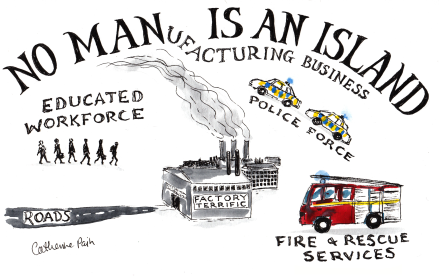
Is public spending a drain on the economy or the mark of a civilised society?
Read now to access more details of Is public spending a drain on the economy or the mark of a civilised society?Read this article outlining arguements in debate held under the auspices of the Social Sciences Student Connections, Big Conversation.
Rate and Review
Rate this video
Review this video
Log into OpenLearn to leave reviews and join in the conversation.
Video reviews